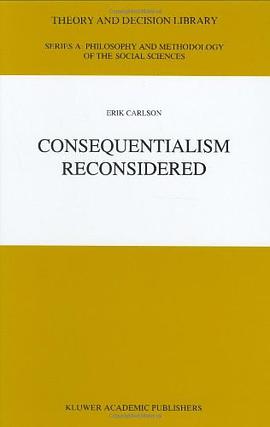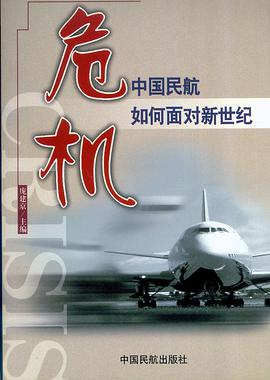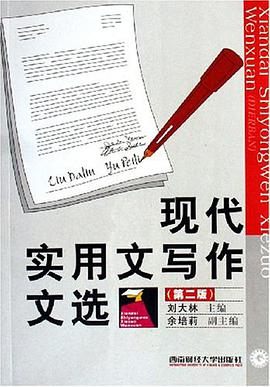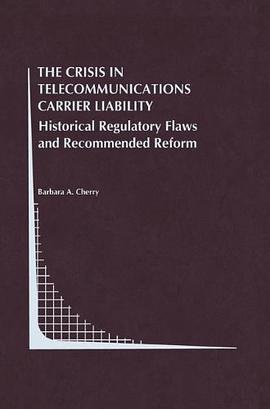

具体描述
In Consequentialism Reconsidered, Carlson strives to find a plausible formulation of the structural part of consequentialism. Key notions are analyzed, such as outcomes, alternatives and performability. Carlson argues that consequentialism should be understood as a maximizing rather than a satisficing theory, and as temporally neutral rather than future oriented. He also shows that certain moral theories cannot be reformulated as consequentialist theories. The relevant alternatives for an agent in a situation are taken to comprise all actions that they can perform in the situation. The defense of this idea necessitates certain modifications to the standard consequentialist criteria of obligatoriness, rightness and wrongness. The problem of whether agents should adapt their actions to their own future actions is also addressed. Further, a conditional analysis of performability is suggested, and it is argued that particular actions should in this connection be regarded as 'abstract' rather than 'concrete'. The final chapter sketches a consequentialist theory for collective agents.
作者简介
目录信息
读后感
评分
评分
评分
评分
用户评价
坦白说,这本书的阅读体验更像是在攀登一座技术性极强的山峰,对读者的基础知识储备提出了不低的要求。那些关于规范伦理学历史脉络的梳理,清晰有力,但同时也要求读者对康德、密尔乃至更早期的思想家有相当的了解,否则很容易在某些细节上感到吃力。然而,一旦你跟上了作者的思路,那种收获是无与伦比的。作者对“可预测性”的探讨,尤其引人深思——在信息不完全和随机性主导的世界里,我们究竟应该如何量化我们行动的“后果”?这本书没有提供廉价的答案,相反,它深入剖析了我们试图量化一切的努力本身可能存在的内在矛盾。它的论证结构如同精密复杂的钟表,每一个齿轮都咬合得恰到好处,推动着读者对既有信念进行一次彻底的、近乎“釜底抽薪”式的审视。这本书无疑会成为未来数年内,伦理学界争论的核心参考点之一。
评分这本书,怎么说呢,读完之后,我的脑子里像跑过了一支训练有素的侦察队,每条线索都被仔细盘问,每一个假设都被推到极限。它不仅仅是在探讨某种伦理框架的合理性,更像是在邀请你进行一场彻底的思维重构。作者似乎对“结果”这个词本身都抱有一种近乎偏执的审视,仿佛这个词的每一个字母背后都藏着一个未被揭示的哲学悖论。我特别欣赏那种不轻易下结论的笔触,它没有试图用一套整齐划一的理论去碾压所有的反对意见,反而耐心地为你铺陈出每一种立场可能带来的连锁反应,那种精妙的逻辑推演,简直让人拍案叫绝。尤其是在讨论某些极端情境下的道德抉择时,那种细致入微的分析,仿佛能让人真切地感受到决策者在权衡利弊时的那种沉重与挣扎。读这本书的过程,与其说是学习,不如说是一次深入自我辩论的旅程,它迫使你正视自己内心深处那些未经检验的道德直觉,然后用一把锋利的手术刀,去剖析它们的构成与可靠性。那种被挑战后的智力上的酣畅淋漓,是近些年阅读中少有的体验。
评分这本书的叙事节奏,初看之下略显晦涩,但一旦沉浸其中,你会发现那是一种精心设计的迷宫,每一个转角都通往一个更深层次的哲学洞察。我感觉作者像是手持一把刻刀的工匠,不是粗略地勾勒轮廓,而是极其耐心、近乎苛刻地雕琢每一个概念的棱角。那些关于“意图”与“实际后果”之间张力的论述,简直是教科书级别的范例。作者并没有满足于停留在对经典文本的引用上,而是不断地将理论工具应用于当代社会中那些让人困惑的灰色地带,这让原本抽象的哲学讨论变得异常鲜活和具有紧迫感。我特别喜欢作者处理反驳意见的方式——不是简单地驳斥,而是将其纳入更宏大的框架中进行重新定位,这显示出一种极高的学术自信和深厚的文献功底。读到后期,我甚至开始怀疑自己之前所有关于“好”与“坏”的简单划分,这本书成功地将我们带离了道德判断的舒适区,强迫我们直面行动的全部复杂性。
评分作为一名对应用伦理学有长期关注的读者,我必须承认,这本书提供了一个极其坚实、近乎无可挑剔的理论地基。它并非一本面向大众的入门读物,它的受众显然是那些愿意投入时间和精力,去理解哲学思想底层结构的人。作者对“时间维度”在道德评估中的作用的分析,尤为独到,它将传统伦理学往往忽略的“延迟满足”或“长期影响”纳入了核心考量,构建了一个更加动态和现实的道德评估模型。我特别欣赏作者在处理那些“理论上完美,实践中灾难”的案例时所展现出的那种平衡感,既不彻底否定该框架的理论魅力,也不回避其在现实应用中的脆弱性。这本书的结论是开放的,但它为所有未来的讨论设下了一个极高的标准,任何想在这个领域进行有意义对话的人,都无法绕开这本书所构建的思维壁垒。它成功地将一个老旧的话题,打磨出了一种令人耳目一新的尖锐感。
评分这本书的文字风格,简直可以称得上是“冷静的激情”。它没有煽动性的口号,没有戏剧性的情节转折,但字里行间流淌着一种对真理的近乎狂热的探求欲。作者似乎对当代文化中那种过于情绪化或流于表面的道德说教深感不屑,转而选择了一种极其克制但逻辑密度极高的书写方式。我发现自己常常需要停下来,反复咀嚼某一个精心构造的句子,因为那个句子往往浓缩了一个完整的论证链条。书中对“潜在后果”与“实际后果”进行区分的那几章,简直是思维的体操。它挑战了我们日常生活中那种“出发点是好的,结果自然不会太差”的朴素信念,用严谨的分析告诉我们,意图的纯洁性,在宏大计算面前,或许只是安慰剂。这本书的价值不在于它能教你做出何种具体选择,而在于它彻底升级了你思考问题的“操作系统”。
评分 评分 评分 评分 评分相关图书
本站所有内容均为互联网搜索引擎提供的公开搜索信息,本站不存储任何数据与内容,任何内容与数据均与本站无关,如有需要请联系相关搜索引擎包括但不限于百度,google,bing,sogou 等
© 2026 book.wenda123.org All Rights Reserved. 图书目录大全 版权所有




















